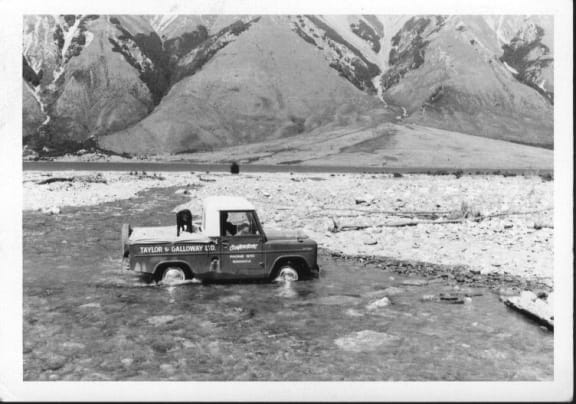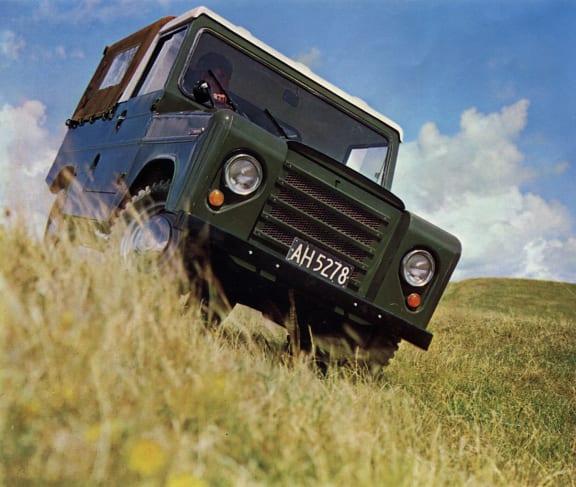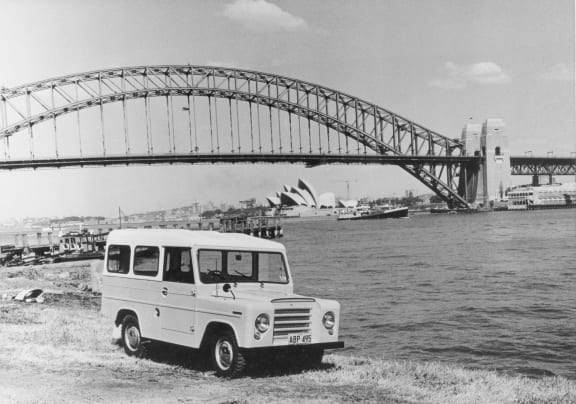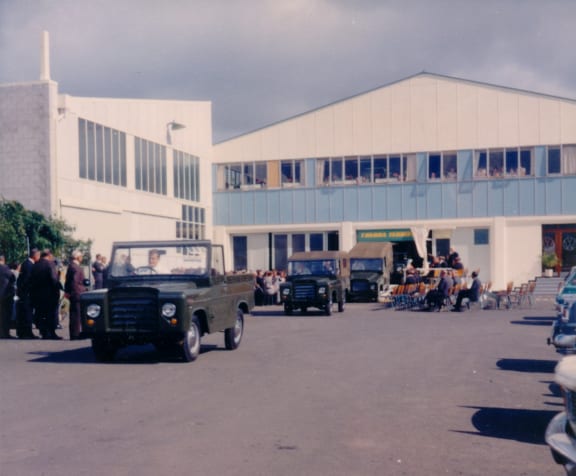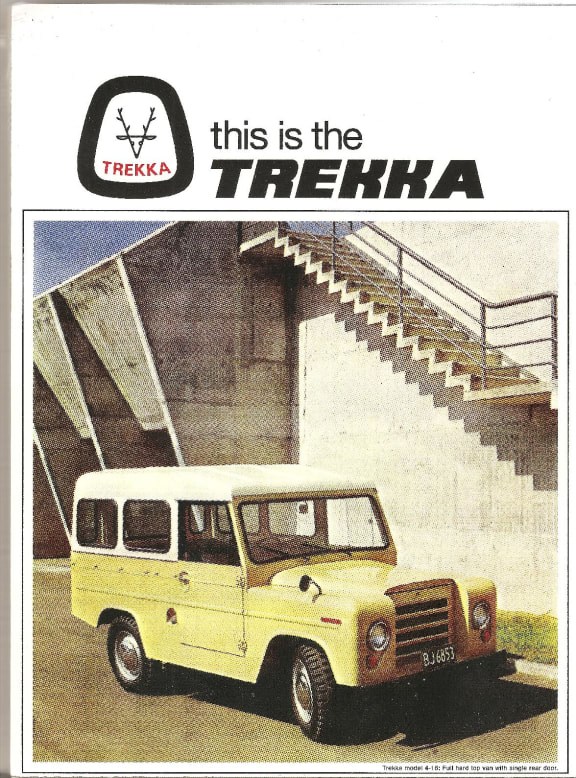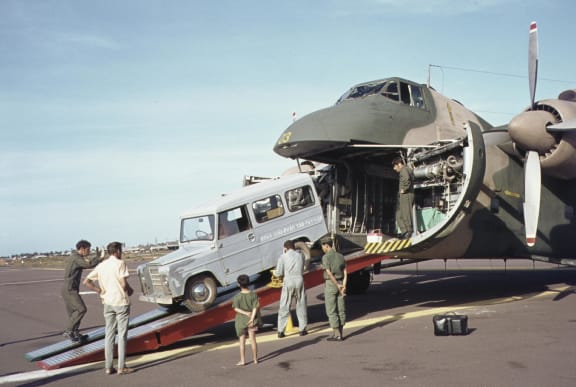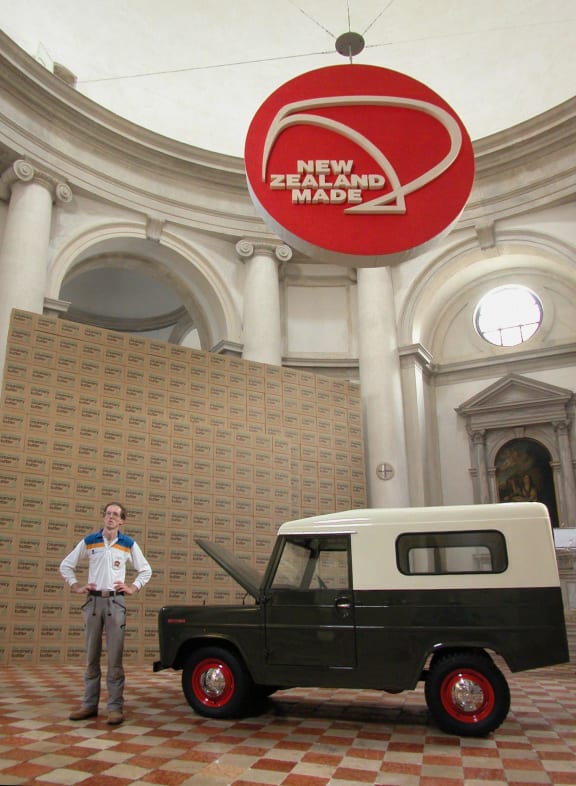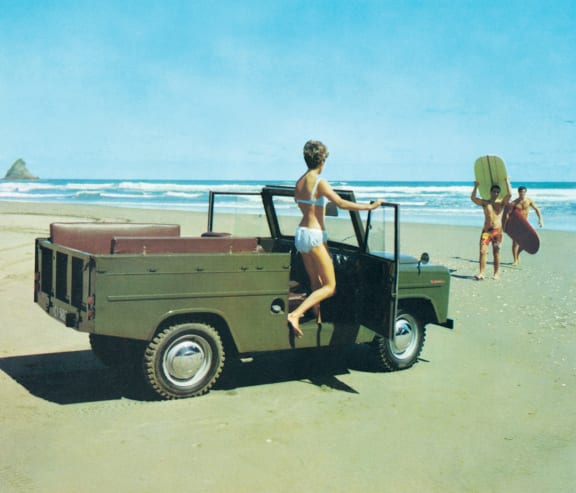One of the most ambitious chapters in New Zealand's manufacturing history opened 50 years ago today - the rollout of the country's first and only mass-produced motor vehicle.
The Trekka resembled an under-nourished Land Rover, and its creation was an unlikely blend of Kiwi can-do, with mechanicals from then-communist Czechoslovakia.
2500 were produced, with hopes at one point of a flourishing export trade to Australia and Indonesia.
The gawky utility rolled out of Motor Holdings assembly plant in Auckland's Otahuhu on 2 December 1966, in an age of extreme trade protectionism, ensuring success - albeit briefly - in new car-starved New Zealand.
Back then, the government closely controlled all imports, issuing licences for everything from cars to tomato sauce.
It was partly to control the country's balance of payments, but the regime also included bonuses aimed at boosting the locally-made content of cars which were mostly assembled from imported kits.
There were several attempts at the ultimate goal - New Zealand's own motor vehicle, before the concept of the Trekka become a reality.
Skoda importer Phil Andrews, and assembly plant proprietor Noel Turner realised the concept of importing cheap mechanical components from communist Czechoslovakia, and marrying them to a locally-designed and built body.
It targetted the market for tradespeople and farmers, who had few affordable alternatives.
At a launch price of £899, the Trekka was one of the cheapest vehicles available in a market where new car prices were high, and cash deposits of up 60 percent were mandatory.
Waiting lists were long for popular new models like the Morris 1300 or Ford Escort, but Trekka was available off the floor, on low deposit, making new car ownership accessible to many for the first time.
Ambitions were high. The government negotiated with it's Australian counterpart to export Trekkas across the Tasman in return for a higher number of Australian-made Holden cars coming the other way.
In 1969, 100 Trekka kits were shipped to Indonesia, and a second shipment was prepared, but payment difficulties scuttled what would have become the country's biggest manufactured export.
The government and local bodies were enthusiastic supporters of the NZ-made vehicle, buying them for fleets across the country.
In 1969, the government flew five Trekkas into the Vietnam war, for use at a civilian hospital in Qui Nhon, staffed by New Zealand medical staff.
The Trekka was lucky to avoid the attentions of black marketeers in Vietnam. It's rarity meant there was a more ready market for stolen US army jeeps, either complete or in parts.
The Trekka project, along with the assembly of Skoda cars in Auckland, attracted a steady stream of official visitors from communist Czechoslovakia, sparking the interest of the Security Intelligence Service.
SIS officers would visit the plant, questioning management about the activities of the visiting Czechs, and the relationships they had.
But the protectionism that allowed the creation of the Trekka, began to be dismantled in the early 1970's and more attractive and modern Japanese vehicles began to arrive.
Production ended in 1972, and the Trekka was quickly discarded.
Its revival as a Kiwi icon began in the 2000s, with it's story told for the first time in an RNZ documentary, and subsequent book The Trekka Dynasty.
Artist Michael Stevenson's work This is The Trekka represented New Zealand at the 2003 Venice Art Biennale, featuring a restored Trekka as its centrepiece.
It told the tale of an agriculture-based South Pacific nation, striving to become an industrial player via links with communist Czechoslovakia.
In a "coal to Newcastle" development, a handful of Trekkas have been bought by Skoda enthusiasts in the Czech Republic, returning the vehicles to the land from which its mechanical parts originated.
Several dozen remain registered and roadworthy, with others still emerging from barns and sheds where they've spent in some cases, decades.
Related links:

